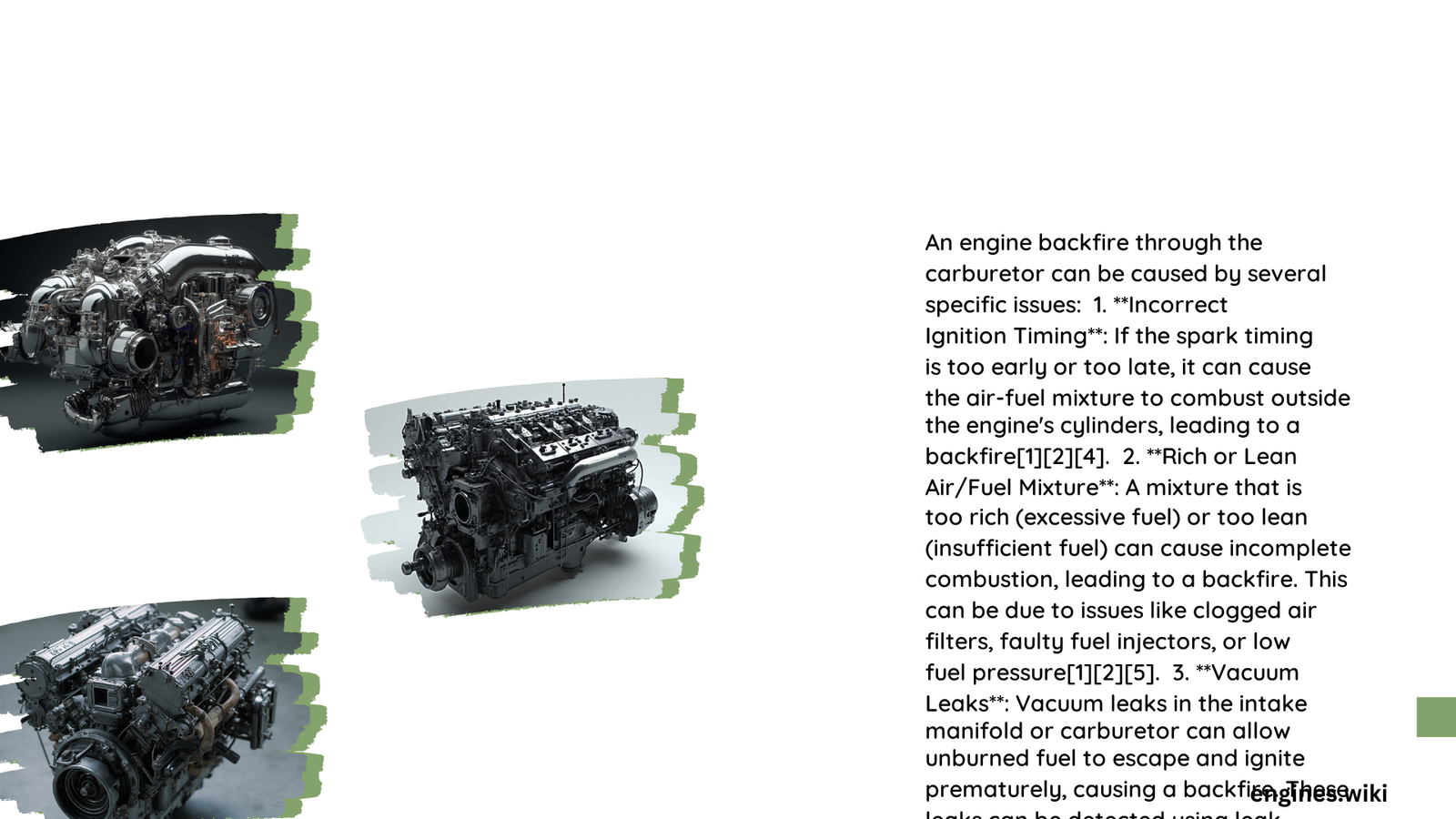Engine backfiring through the carburetor can result from multiple complex mechanical and fuel system interactions. When combustion occurs outside the engine’s normal combustion chamber, typically in the intake or exhaust system, it creates a distinctive popping or banging sound that signals underlying performance issues requiring immediate diagnostic attention.
What Causes Carburetor Backfire?
Why Do Valve Problems Trigger Backfiring?
Valve malfunctions represent a primary catalyst for carburetor backfiring. When intake or exhaust valves fail to seal correctly, they create opportunities for premature combustion. Specific valve-related issues include:
- Incomplete Valve Closure: Prevents proper compression
- Carbon Buildup: Prevents full valve seating
- Valve Wear: Reduces precise mechanical operation
How Does Fuel Mixture Contribute to Backfiring?
Fuel mixture ratios play a critical role in engine performance. Deviations from the ideal air-to-fuel ratio can trigger backfiring:
| Mixture Type | Air:Fuel Ratio | Backfire Characteristics |
|---|---|---|
| Lean Mixture | >14.7:1 | Carburetor backfiring |
| Rich Mixture | <14.7:1 | Exhaust system backfiring |
What Ignition Timing Factors Cause Backfiring?
Incorrect ignition timing disrupts the engine’s combustion sequence. Key considerations include:
- Standard timing range: 28-32 degrees Before Top Dead Center (BTDC)
- Premature spark generation
- Delayed spark occurrence
Can Carburetor Components Trigger Backfiring?
Carburetor-specific issues can directly contribute to backfiring:
- Blocked jet passages
- Incorrect float level settings
- Worn needle valves
- Damaged gaskets causing vacuum leaks
How Do Spark Plug Conditions Influence Backfiring?
Spark plug health significantly impacts engine combustion:
- Incorrect gap settings (typically 0.030 inches)
- Carbon deposit accumulation
- Worn electrode surfaces
- Inconsistent spark generation
Diagnostic and Repair Strategies

Troubleshooting Approach
- Inspect valve condition and carbon buildup
- Verify fuel mixture ratios
- Check ignition timing precision
- Clean carburetor thoroughly
- Replace worn spark plugs
Recommended Maintenance Techniques
- Use compressed air for carburetor cleaning
- Apply decarbonizing solutions
- Perform periodic valve adjustment
- Monitor spark plug condition
Cost and Complexity Considerations
Repair complexity varies based on specific issues:
- Spark plug replacement: $5-$10
- Carburetor kit: $20-$50
- Professional diagnostic service: $75-$150
Prevention Strategies
- Regular maintenance
- Use high-quality fuel
- Keep carburetor clean
- Monitor engine performance consistently
Technical Insights
Backfiring represents a symptom of underlying mechanical disruptions. Professional diagnosis ensures comprehensive resolution and prevents potential long-term engine damage.
